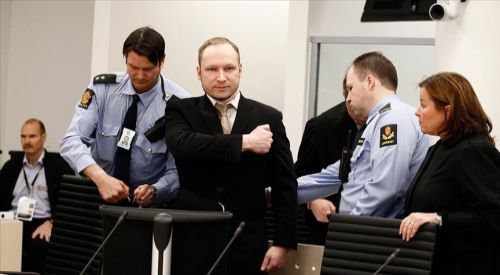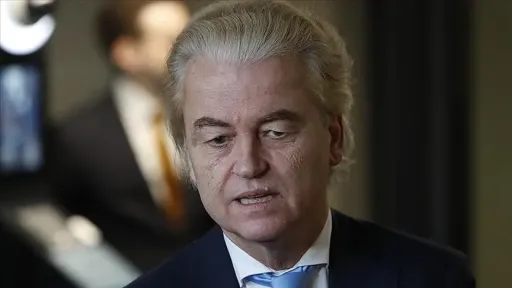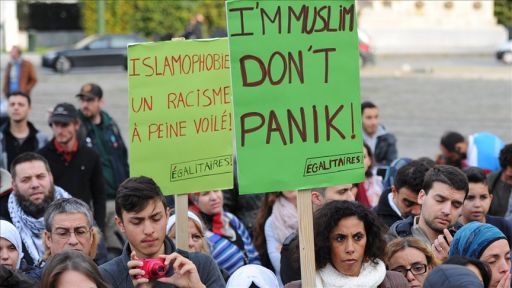Commemorating July 22, 2011: Violence in the name of 'fighting Islamization'

Europeans should not only be 'more serious' about white supremacist underground movements to challenge Islamophobia. They must put policies in place to support Muslims.
I still remember the day it happened. I suppose I had the same thoughts on my mind like many other Muslims in Europe: “Let’s hope this is not another violent attack perpetrated in the name of one of the largest religions on earth.”
Even before the facts were out, some news outlets had pretended to know the truth and published their articles on the worst attack done supposedly by “violent Muslims”.[1] However, it soon became clear that they were mistaken, and on July 22, 2011, Europe would witness its worst violent attack in decades. And it was not the usual suspects but a far-right-minded individual that attempted to set an example against an alleged Islamization.
Islamophobia has become mainstream
Eleven years have passed since the far-right Norwegian terrorist Anders Breivik massacred 77 people in a violent spree at a socialist youth camp in Utøya, Norway; Breivik believed the camp would let in Muslims who would “reshape the demographics of a white, Christian European continent.”
The 1,500-page “manifesto” he left behind demonstrated that his copy-paste online publications drew from the literature produced by the “Counter-Jihad Movement”[2] and well-established “mainstream”[3] authors, who have been central to the spreading of anti-Muslim ideas in a more respectable and less aggressive way. In other words; his extreme act actually represented several quite “mainstream” thoughts about Islam and Muslims.
White supremacy still persists in Europe
In a way, July 22, 2011, could have been a wake-up call for national governments and supranational organizations to take a stance and do something against increasing anti-Muslim racism. But what we have been witnessing since 2011 on a large scale is less promising. On the contrary, Breivik has become a role model that is imitated around the globe.
From the Christchurch attack that killed 51 people in two mosques in new Zealand in 2019 to the shooter of El Paso, the US in 2019 and to the murderer in Hanau, Germany in 2020, numerous individual perpetrators drew on Breivik and later terrorist Brenton Tarrant (Christchurch) to mimic their violent attacks in the name of fighting the “Great Replacement.”[4] Beyond individual acts of mass violence, organizing armed white supremacist underground movements in Europe is a trend that persists.[5]
Many political parties have anti-Muslim attitude
More worrying, the ideas that had been quite popular on the far-right of the political spectrum and have also become to some extent mainstream have meanwhile been less challenged and even arrived in positions of political power. With the short reign of far-right parties like Lega in Italy or the Freedom Party in Austria and even more troubling, with the co-optation of anti-Muslim far-right ideas by centrist-left and centrist-right parties throughout Europe, anti-Muslim positions had become mainstream.
Valérie Pécresse, the center-right presidential candidate during the French elections this year -- when she used the phrase “Great Replacement” in an election speech -- might be one of the latest prominent examples of how mainstream ideas about an alleged Islamization of Europe have become.[6]
When New Zealand’s Prime Minister Jacinda Ardern initiated a global “Christchurch Call” last year to commemorate two years after the killing of 51 Muslims in New Zealand’s Christchurch by a white supremacist, then-Austrian Chancellor Sebastian Kurz and French President Emmanuel Macron were discussing other issues. Kurz solely focused on “the battle against political Islam” and “especially Islamist motivated terrorism”. This is symbolic of the "institutionalized Islamophobia" that has been established in countries such as Austria, France, and Denmark.
Signs of hope?
On the other hand, there are also small signs of hope. Finally, three years after the murder of 51 people in two mosques in New Zealand’s Christchurch, the UN adopted a resolution to make March 15 the International Day to Combat Islamophobia.[7] Yet, the current European leadership does not seem to be convinced about fighting Islamophobia.
A coordinator position at the European Commission on combating anti-Muslim hatred, originally established in 2015, has been vacant since the new Commission is in place. In contrast, many anti-racist NGOs in Brussels have regarded the position as widely impotent. In other words, despite being behind, the European Commission now has a chance thanks to a new UN resolution that was approved by consensus, including all European countries.
To challenge Islamophobia, the European institutions and nation-states should not only be “more serious” about white supremacist underground movements threatening the political order. Additionally, they must put policies in place to support Muslims who have been denied equal rights and stigmatized for too long.
ANALYSIS: By Prof. Farid Hafez-Anadolu Agency
Prof Hafez is a visiting professor of International Studies at Williams College, Massachusetts and a senior fellow at Georgetown University’s The Bridge Initiative.







